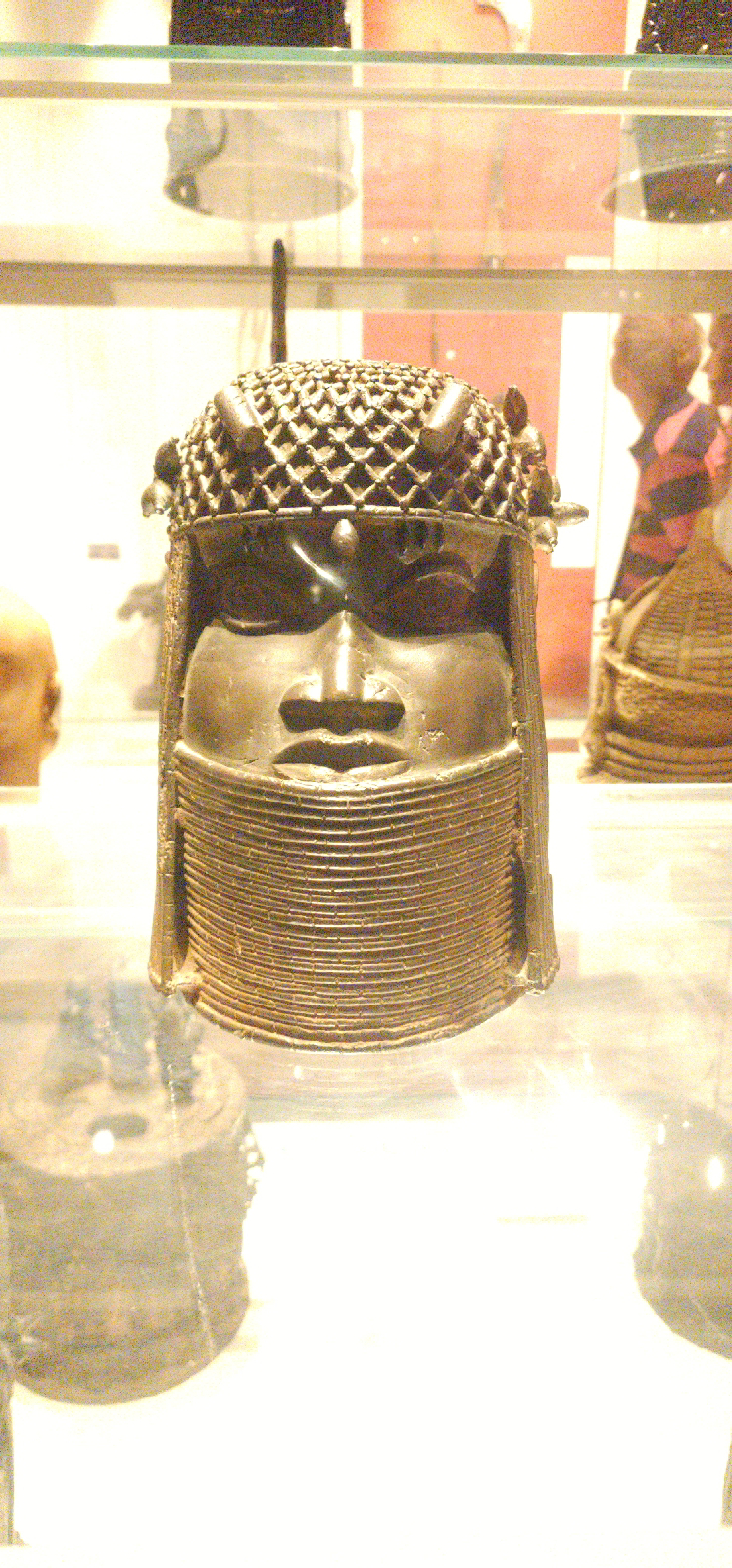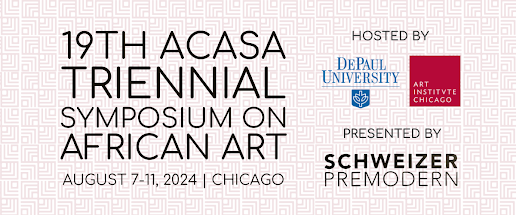This really nice video was recently produced by Princeton University for its Venture Forward: "Audacious Bets." Proud to be featured in this program and for the recognition of my work at the university.
Ọfọdunka
Art. Life. Politics
Sunday, January 5, 2025
On Belgium's Kind Leopold II and the "Congo Holocaust."
 |
| Men with severed hands |
I refer to the sometimes-called “Congo Holocaust” perpetrated by the Belgian King Leopold II (between about 1885 and 1905), which by some accounts reduced the population of the Congo by half. With the initial support of the US Congress, and subsequent approval of the European powers Leopold had claimed the Congo territory--ironically called "Congo Free State"--as his personal property at the Berlin-Congo Congress of 1884-85. Below is an excerpt from John Daniels’ 1908 comment on the 1905 Report of the Commission of Inquiry into King Leopold of Begium’s Congo Free State. That report was the basis for the successful international human rights campaign that forced Leopold to hand over the territory to the Kingdom of Belgium, which in turn colonized and voraciously exploited the territory until 1960. The Congo region never recovered from King Leopold’s crime.
“The [1905] Report of the Commission of Inquiry shows that
the great underlying iniquities in the Free State are: first, the wholesale theft
by the "State" of all the land except the merest hut spaces, leaving
the natives landless in their own country; second, as a necessary concomitant
of the theft of the land, the seizure of all the produce of the land with which
the natives might and should engage in legitimate trade for their own
betterment, and by the almost total lack of which they are rendered
possessionless in their own country; third, the enforcement upon the natives of
a so-called tax in labor (that being, as the Congo officials naïvely contend,
the only commodity left to the natives with which to pay taxes) which is so
enormous, as actually enforced, that it keeps the natives at work for the State
almost incessantly, making of them at last slaves in their own country.”
John Daniels, “The Congo Question and the "Belgian
Solution" The
North American Review, Vol. 188, No. 637 (Dec., 1908), pp. 891-902.
Saturday, December 21, 2024
J'accuse, Nigerian Government and political class!
As of this morning, Saturday, December 21, 2024, at least 100 people, mostly women and children were crushed to death in three different parts of Nigeria: Anambra and Oyo States, and the federal capital, Abuja. How? They all trooped out in search of free rice distributed by state or private organizations ahead of the Christmas celebration. Clearly without plans for adequate crowd control and without care about the level of desperation among the population, the organizers failed to manage the process, leading to stampedes. So, scores of hungry mothers, wives, and children went in search of food. They were served death. We mourn the dead.
Words fail me.
I feel nothing but utter disgust for the criminal enterprise called governance in Nigeria today. We have watched with increasing alarm as a network of individuals from all parts of Nigeria systematically take the country hostage not just by corrupting the political process as never before, but also simultaneously binding the economy into dirty bunches and hauling them, with stupendous brazenness, into their godforsaken private bank accounts. Or in a good number of instances--according to news reports--into vast septic tanks, when they find no means of moving their loot into the vaults of financial institutions scattered around the planet.
I feel nothing but deep indignation for the folks in Nigeria who have bled that country for so long to the point that not even water sips out of its veins. And yet, there is no accountability. No one here or out there to force them to stop their murderous rampage on a most resilient and resourceful folk who make up arguably the world's most complicated nation (500+ languages; almost 400 ethnicities; nearly 50/50 ratio of Muslims and Christians; 220 Million people in a contiguous landmass just a third more than the US State of Texas).
The lack of accountability and the brazenness of Nigeria's political process would, in 2023, see a ruling party that did its best to immiserate the entire population and watch as frightening levels of insecurity spread over the land apparently returned to power for another four years. Or do you think that Nigerians are tragic masochists edging ever closer to auto-asphyxiation?
The economy has cratered since that election. The government feeds the people slogans. The politicians allot themselves mindboggling salaries and, alongside their accomplices outside of government, do their best to live their versions of the high life. Even so, the recent photo of a family in Southeastern Nigeria with children showing telltale signs of kwashiorkor--that dreadful malnutrition disease perhaps seen first in postcolonial Africa during the Biafran War and since in some of the world's worst sites of humanitarian catastrophe--announced the frightening reality of today's Nigeria. That photo tells you everything you want to know about the people who turn up at these Christmas rice distribution events and end up dead.
I do not know how we get out of this.
Damn the vampires!
Sunday, September 15, 2024
"Gavin Jantjes, To Be Free" Exhibition at Whitechapel Gallery, London
Congratulations to my dear brother @salahsmh for organizing the long overdue retrospective of the South African artist Gavin Jantjes @whitechapelgallery, London. The show, titled "To Be Free," after Nina Simone, ended about two weeks ago.
It was the latest of Salah's 3-decades long incomparable work of redrawing the map of modern and contemporary art through groundshifting solo and group exhibitions and publications, and through his work as a professor. Salah, for instance, opened up Venice to African artists when he initiated the "Africa in Venice" program that produced two highly acclaimed exhibitions by African artists in the early 2000s, leading eventually to the now-normal presence of Africans in the International Exhibition and, even more important, approximately 10 national pavilions in recent editions of the biennial. He has been singularly responsible for keeping our journal Nka afloat in the years when publishers and funding agencies had no interest in our vision. And, in his time at Cornell, he has trained quite a few of the scholars working actively in the academy and the museum, quite apart from establishing the Institute of Comparative Modernities at that Ivy League university.
And yet, it had to take Salah's curatorial intervention, once more, to give Gavin his due by organizing this exhibition with the institutional backing of @sharjahart, where the show opened earlier in the year before traveling to Whitechapel.
We have seen this before. Ibrahim El-Salahi (b. 1930), arguably the most significant and influential 20th-century modernist from Africa had no major museum exhibition in Britain where he has lived for decades, until Salah, after years of trying unsuccessfully with US and European museums, found an ally in and support from the intrepid @hooralq and @sharjahart where Salahi's magnificent retrospective opened, before traveling to the Tate Modern in 2013.
Friday, August 30, 2024
Small Victories in the Restitution "Wars"
Wednesday, August 7, 2024
Sunday, August 4, 2024
ACASA Triennial 2024 Open Session: Best Practices for Restitution and Care of African Art in US Museums
|
|
|
|
|


















